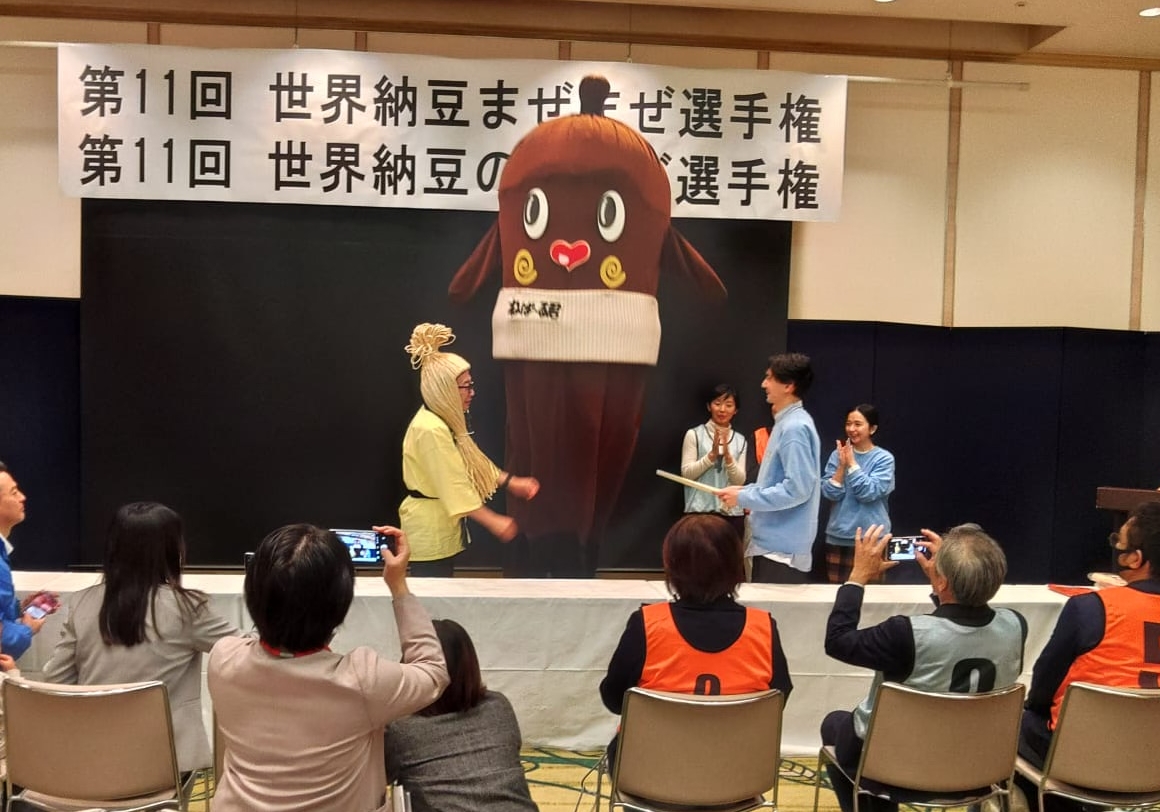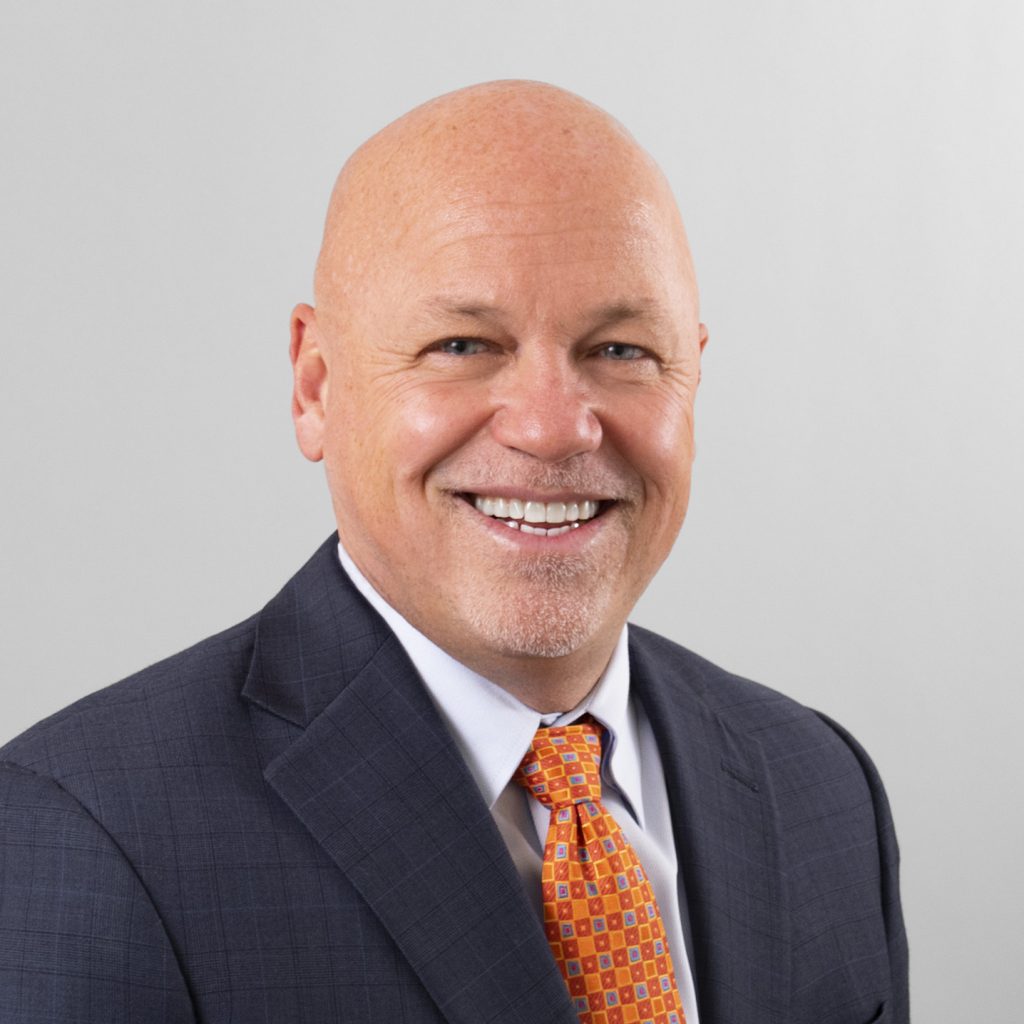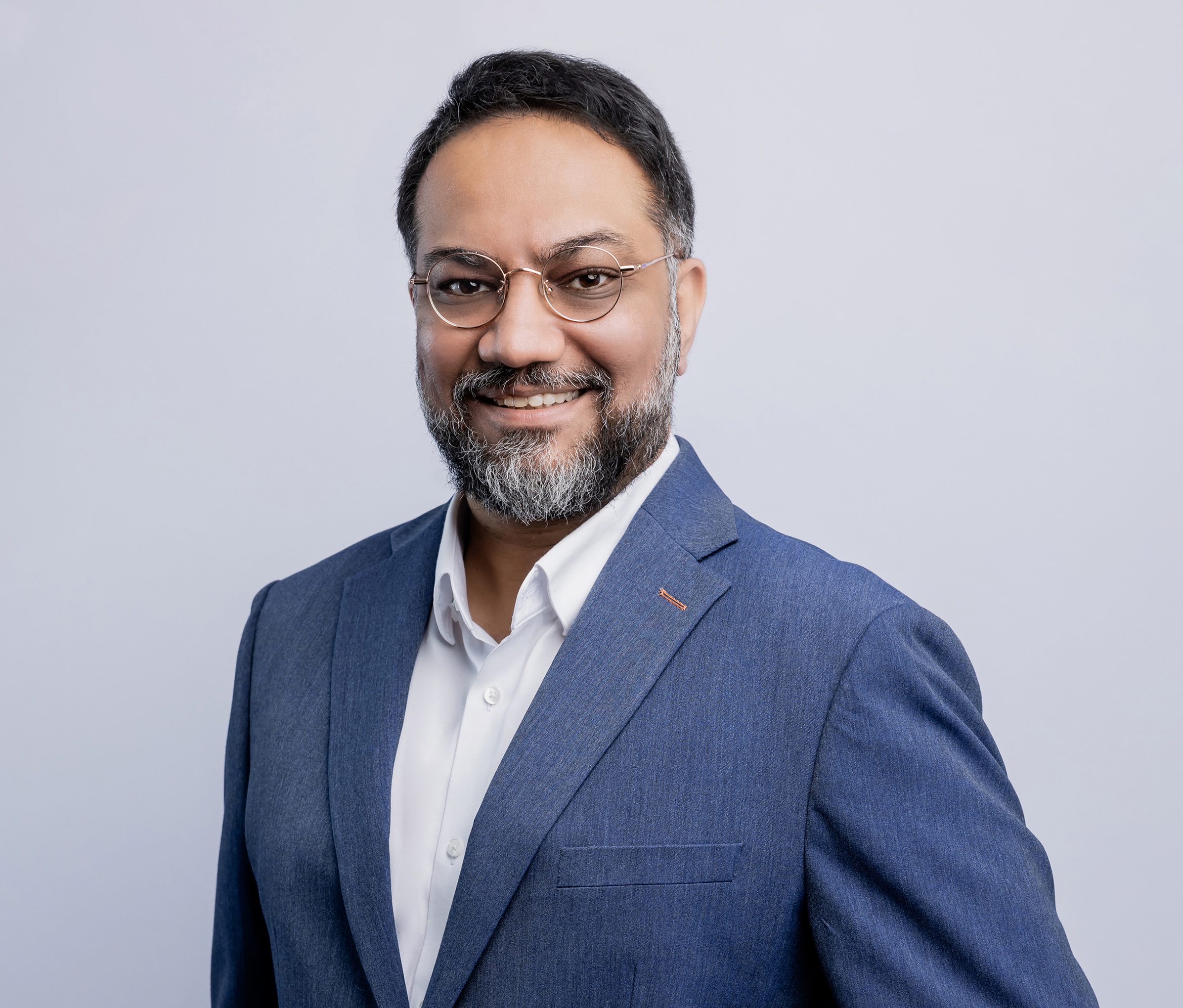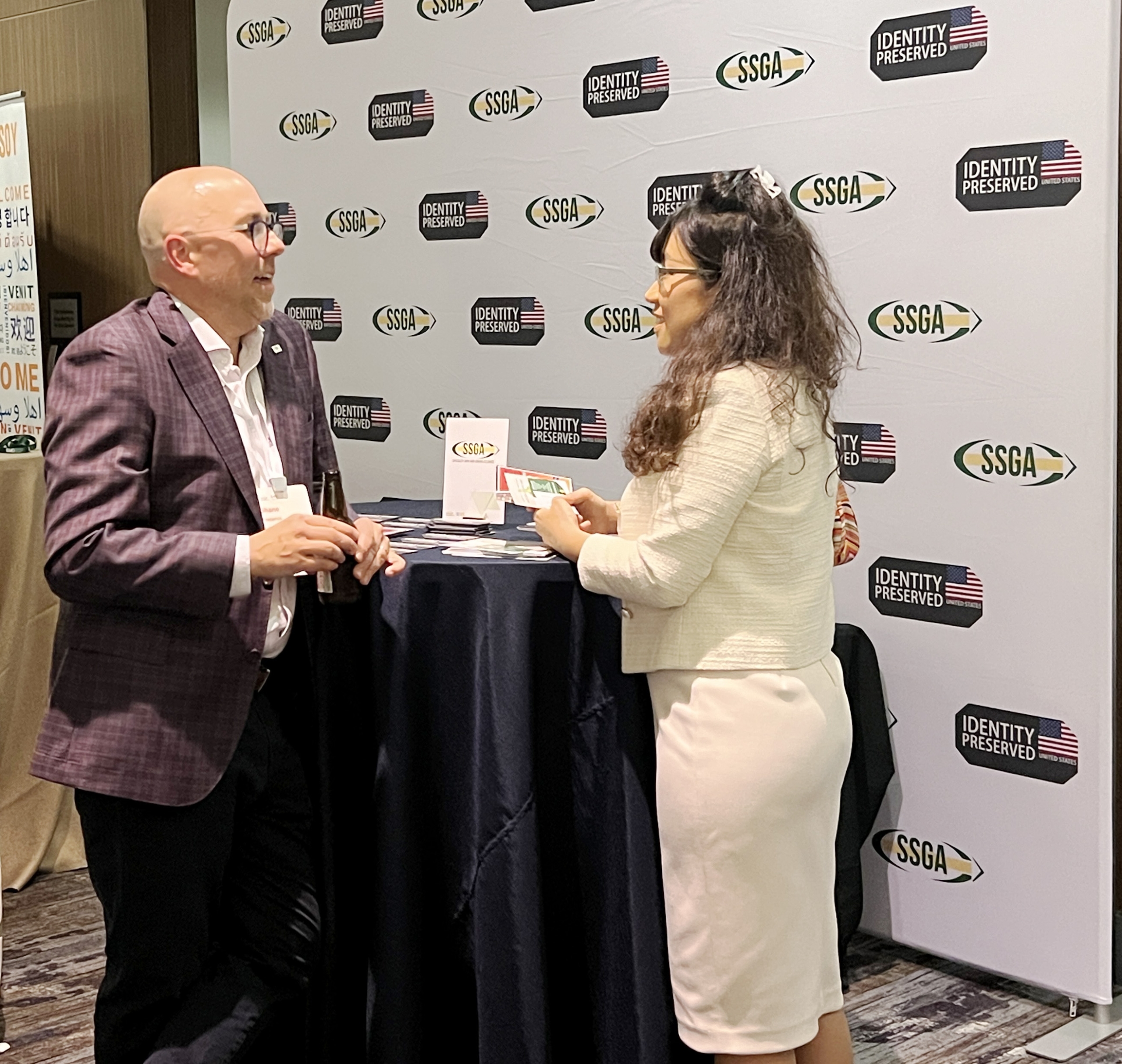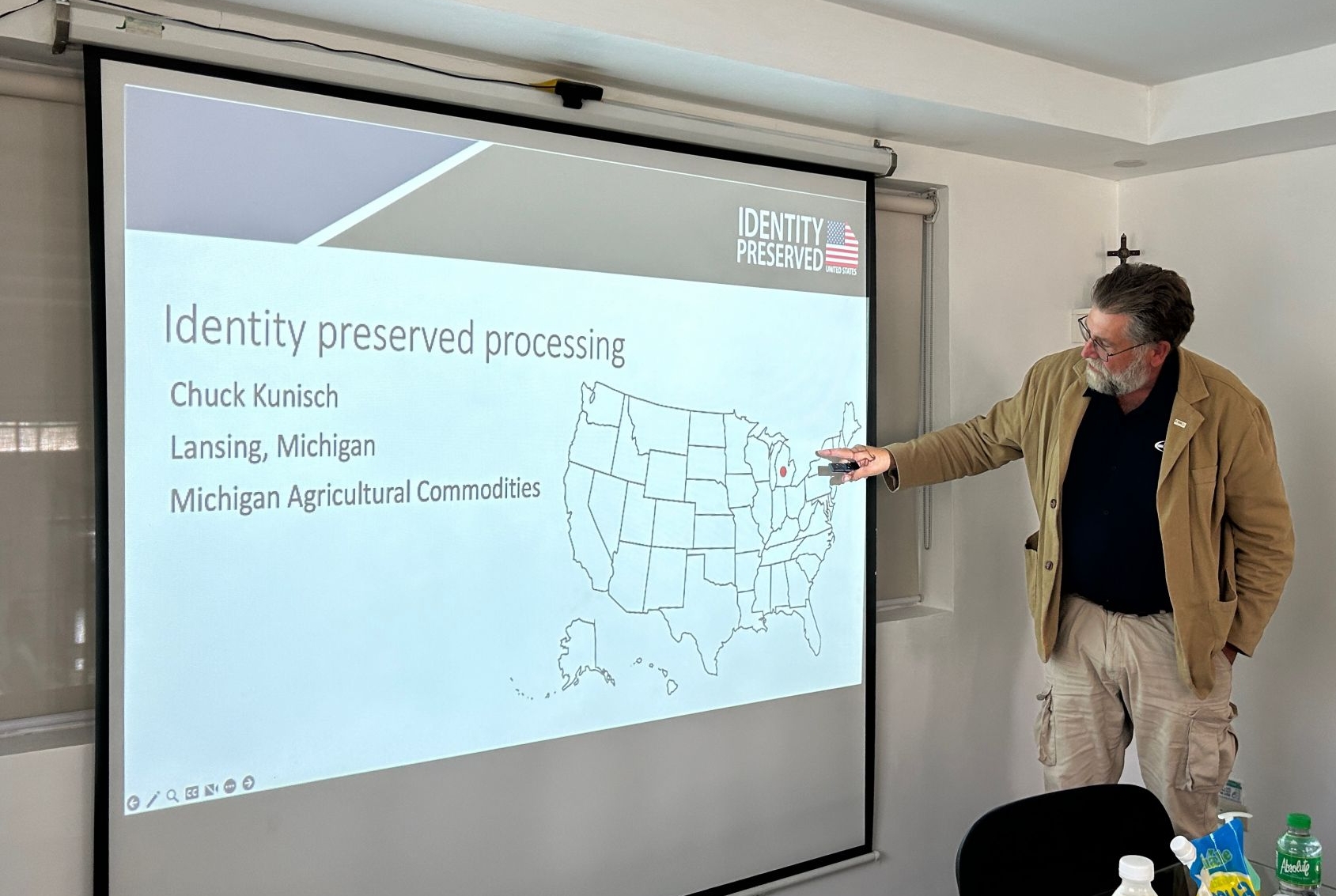If you hear the phrase “ride the wave,” on a typical day in Honolulu, Hawaii, you may think of the ocean and a surfboard. But that was far from the intent Matt Tripodi had when he spoke those words at the Identity Preserved International Summit, hosted by the Specialty Soya and Grains Alliance (SSGA) Feb. 18-20.
Tripodi, a Senior Global Territory Director at Euromonitor International, presented to nearly 100 Summit attendees about opportunities for U.S. agriculture, specifically U.S. Identity Preserved agricultural products, in a shifting trade environment.
Tripodi encouraged attendees, including U.S. growers, suppliers and exporters of premium crops, as well as buyers, importers and food manufacturers from 13 Asian countries, to continue to use identity preserved to differentiate and elevate their businesses.
“U.S. Identity Preserved is the ultimate driving machine in the ag space,” Tripodi said. “This is your brand to build, promote and sell around the world.”
Identity Preserved around the globe
Nearly 40 buyers, importers and food manufacturers from China, Japan, Singapore, South Korea, Nepal, India, Thailand, Indonesia, Vietnam, Myanmar, Cambodia and the Philippines traveled to the Crossroads of the Pacific for the event. While many international guests are in the beginning stages of considering identity preserved grains and oilseeds, several are already purchasing these premium crops for their business. Three of those manufacturers spoke of their experiences utilizing U.S. Identity Preserved field crops in their food manufacturing.
“Quality is the first thing I’ll say; the second would be the marketing point,” said Jin Yoon of Jinhwa Food in Korea, about why U.S. Identity Preserved makes a difference for that business. “I have something to tell the customer that this is IP, but we still have a chance to show them this product is more safe and healthier than others.”
Jinhwa Food, an importer and manufacturer of buckwheat food products, is one of the first international companies to use the U.S. Identity Preserved brandmark on its products. Another international company approved to use the brandmark on products, Shree Radne Rani International Trading from Nepal, was also on the buyers panel, along with Ling Yi Ti Tofu from Cambodia.
Gaurav Agrawal, managing director at Shree Radne Rani International Trading, attended the first Summit in 2023 and credits the education and connections he made there as a major reason for his decision to introduce U.S. Identity Preserved-certified soy to food manufacturing businesses in Kathmandu. In 2024, the first commercial sale of identity preserved soybeans from the U.S. to South Asia arrived via container at the dry port of Birgunj, Nepal.
“Some products give you experiences, some give you relationships and many give you money. I’m very glad and honored, to be associated with institutions like SSGA; and it’s a privilege for us to import IP soybeans into Nepal,” Agrawal said. “I’ve got everything – money, name, experiences – everything IP soybeans has given us. SSGA and USSEC are like a second business family to me.”
Aside from presentations, attendees created connections and learned more about the global identity preserved industry through networking, exhibitor tables and tours.
Another user of identity preserved soybeans from the U.S., Aloha Tofu Factory, hosted tours for nearly 40 Summit attendees and included sampling of soy foods. The 75-year-old business is the largest tofu manufacturer in Hawaii, creating a variety of tofu, yodofu, natto, okara, soy sauce and more for purchase at their factory and several retail stores across Hawaii.
Working with customers
The importance of relationships and the threat of tariffs in global trade were common themes across several Summit presentations.
Jake Noll, general manager of Richland IFC in Breckenridge, Minn., was one who addressed the impending tariffs.
“It’s the elephant in the room, but we can prep for that,” said Noll, an SSGA board member. “Supply can stay consistent; we know that.”
The panel, which also included Todd Sinner of SB&B Foods and JR Kassian of Genesis Seed Solutions, emphasized the need for contracting early and the importance of connections between trade and business partners, no matter the geopolitical situation.
“We continue to listen to our customers, what they need and what they want, so we are breeding our own genetics as well, and hoping to deliver those new genetics,” Sinner said. “But it must be a win for our growers too. It’s important that our growers have a sustainable, high-yielding, high-performing variety that works for their land and their soil types. Those types of things are always going to continue to develop and expand.”
Quality starts on the farm
Like the first Identity Preserved International Summit, the panel of U.S. growers was another fruitful opportunity for questions and answers. The panel included growers Pat Sullivan from Minnesota, Mike Koehne from Indiana and Steve Peach from Michigan.
Each grower briefly presented about his farm, highlighting the people and practices that help sustain an identity preserved crop. And although farms are all different shapes and sizes, they all agreed that farmers demonstrate integrity and passion for growing a high-quality product.
“For me I love knowing where it ends up. I love knowing that my soybeans go into food,” Koehne said. “I feel I always want to make a difference in the world, and I feel like doing this, I’m making a difference.”
Lance Rezac, U.S. Soybean Export Council (USSEC) chair and farmer from Kansas, also spoke about efforts to producing quality, sustainable U.S. Soy. USSEC, as well as Food Export Midwest/Northeast were key strategic partners for the Summit. USSEC also sponsored the event, along with the Wisconsin Soybean Marketing Board, North Dakota Soybean Council, Minnesota Soybean Research & Promotion Council, TruSoya, SB&B Foods, Scoular, South Dakota Soybean Research and Promotion Council, Stonebridge Ltd., Harada, Richland IFC, Brushvale Seed, Asiatek, Bratney, Northern Crops Institute, Iowa Soybean Association, Aloha Tofu, Profinium, PenceAg, World Initiative for Soy in Human Health, North Star Packaging, Friederichs Seed, Inc. and Genesis Seed Solutions.
Other keynote presenters included PURIS CEO Nicole Atchison and Paul Maass, CEO of Scoular, presenting perspectives on sustainability, quality, breeding and technology in ag and food. Other speakers and sessions highlighted opportunities for ancient grains, targeted plant breeding, electronic documentation in trade, ingredient processing, transportation, the Food Export Branded Program, the U.S. Identity Preserved program and more. Attendees ended the three-day conference with a tour of Kualoa Ranch, learning about their agricultural practices while enjoying the island scenery.
Plans are underway for the 2026 Summit, with the location and date to be announced.

